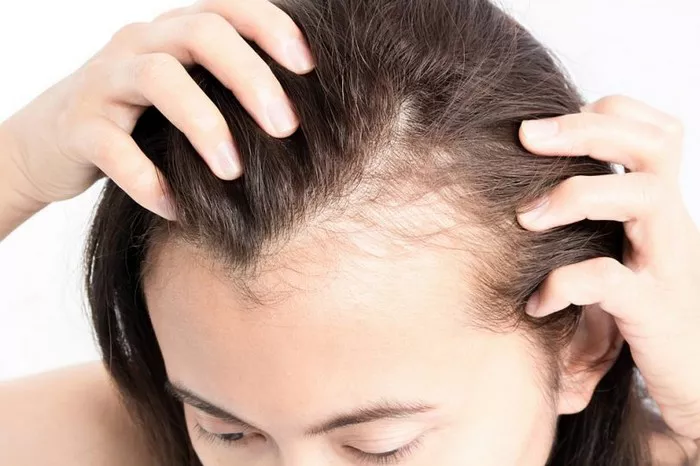Thinning hair is a common concern affecting both men and women, manifesting in various forms such as crown or part-line thinning or generalized thinning across the entire scalp. This article aims to delineate the distinction between hair thinning and hair loss, exploring the potential causes and providing insights into effective treatments for regaining hair health.
Hair Thinning vs. Hair Loss: Different Yet Related
Hair loss involves a significant reduction in the number of hair strands, resulting in visible bald patches or decreased overall hair density. On the other hand, hair thinning pertains to a decrease in the diameter or thickness of individual hair strands, leading to a less voluminous appearance. Both conditions can be influenced by genetics, hormonal changes, medical conditions, and lifestyle factors.
Genetics: Androgenetic Alopecia (Pattern Baldness)
Genetics plays a pivotal role in androgenetic alopecia, a hereditary condition affecting both men and women. In this condition, hair follicles become sensitive to androgens, particularly dihydrotestosterone (DHT), leading to shortened growth phases and gradual shrinking of follicles. This results in the production of finer and shorter hair strands, contributing to visible hair thinning. Consulting a healthcare provider is crucial to understanding genetic predispositions and potential patterns of hair thinning.
Hormonal Changes and Vitamin Deficiencies
Hormonal fluctuations during menopause, pregnancy, or conditions like polycystic ovary syndrome (PCOS) can contribute to hair thinning by affecting the hair growth cycle. Additionally, deficiencies in key vitamins, such as Vitamin D, Biotin (Vitamin B7), Vitamin A, Vitamin E, and Vitamin B12, can impact the hair growth cycle. Addressing these hormonal and nutritional imbalances with guidance from a healthcare provider is essential.
Effective Treatments for Thinning Hair
Determining the cause of thinning hair is crucial for devising an effective treatment plan. Consulting a healthcare professional, preferably a dermatologist or trichologist, can help identify the root cause and tailor appropriate interventions. Several treatments may be considered:
1. At-Home Treatments:
Rogaine (minoxidil): An over-the-counter medication that may assist with early hair loss.
Microneedling: A procedure that, when combined with minoxidil, shows potential in stimulating hair growth.
2. Hair Transplants:
A viable option for localized thinning or balding, especially in cases of pattern baldness.
3. Nutritional Supplements:
Supplements addressing deficiencies identified through blood tests, such as biotin, iron, zinc, and others, can support overall health and potentially improve hair health.
4. Laser Therapy:
Low-level laser therapy shows promise in facilitating healing post hair transplant, addressing genetic hair loss, alopecia areata, and hair loss resulting from chemotherapy.
5. Platelet-Rich Plasma (PRP):
Extracting and processing a small portion of the patient’s blood to inject plasma into the affected scalp area, PRP has demonstrated potential as a safe and efficient treatment for hair loss.
6. Medications:
Finasteride: A prescription medication primarily used for male pattern baldness by reducing the hormone DHT, which can shrink hair follicles. It may not be suitable for women of reproductive age.
Spironolactone: A potential medication for women experiencing female-pattern hair loss, showing effectiveness in halting further hair loss and enhancing hair thickness.
Conclusion: Seeking Effective Solutions
Understanding the multifaceted causes of thinning hair is crucial for implementing effective treatments. Seeking guidance from healthcare professionals ensures a personalized approach, addressing specific symptoms and causes. Whether through lifestyle changes, at-home treatments, or medical interventions, regaining hair health is attainable with the right knowledge and guidance.


